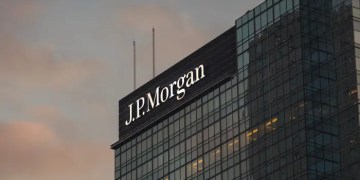Key Takeaways from the Shutdown Impact on Travel
Powered by lumidawealth.com
- Nearly 500 travel companies urge Congress to pass a clean continuing resolution.
- Shutdown delays threaten air-traffic control, TSA operations, and holiday travel.
- Political standoff centers on ACA subsidies worth $350 billion over 10 years.
- Major brands like Hilton, MGM, and Omni warn of economic damage to tourism.
- Airlines and unions meet with White House officials seeking immediate reopening.
The U.S. travel and tourism sector is pressuring lawmakers to resolve the government shutdown amid rising concerns about holiday-season chaos. Nearly 500 travel businesses signed a joint letter urging Congress to reopen the government through a simple funding extension.
The appeal reflects growing anxiety as the shutdown, now entering its second month, impacts air-traffic control, TSA screening, and other essential travel services. The industry fears further disruptions could damage consumer confidence during one of the busiest travel periods of the year — Thanksgiving week, when more than 3 million passengers typically fly on the Sunday after the holiday.
The letter, organized by the U.S. Travel Association, represents a coalition of large corporations and small hospitality firms. Signatories include major players such as Hilton, Omni Hotels, MGM Resorts International, and Delaware North.
Executives warned that the shutdown threatens to suppress travel spending, delay business conventions, and undermine regional tourism. Many companies said bookings are slowing as travelers hesitate to finalize plans amid flight uncertainty. The letter stated, “A continued shutdown is likely to significantly suppress travel demand and spending, creating a real threat to American workers, businesses, and the overall economy.”
The shutdown stems from a budget impasse over Affordable Care Act (ACA) premium subsidies, which Senate Democrats want to extend. The proposed subsidy extension would add $350 billion to the federal deficit over a decade, according to the Congressional Budget Office.
Republicans insist on reopening the government first before discussing healthcare spending. Senate leaders from both parties — Chuck Schumer (D-NY) and GOP counterparts — continue to negotiate but have yet to reach a deal. The White House has blamed Democrats for holding “families and travelers hostage,” while Democrats argue Republicans are avoiding broader negotiations to reduce health costs.
The travel industry’s $2.6 trillion economic footprint makes it one of the sectors most exposed to a prolonged government freeze. Airline CEOs, including United’s Scott Kirby, met with Vice President JD Vance last week, urging immediate passage of a short-term funding bill.
Industry leaders fear that continued federal dysfunction could stall airport modernization, reduce tourism jobs, and dent the rebound in post-pandemic travel. With Thanksgiving bookings already locked, even small disruptions could cost airlines and hospitality groups hundreds of millions in lost revenue and overtime expenses.
















